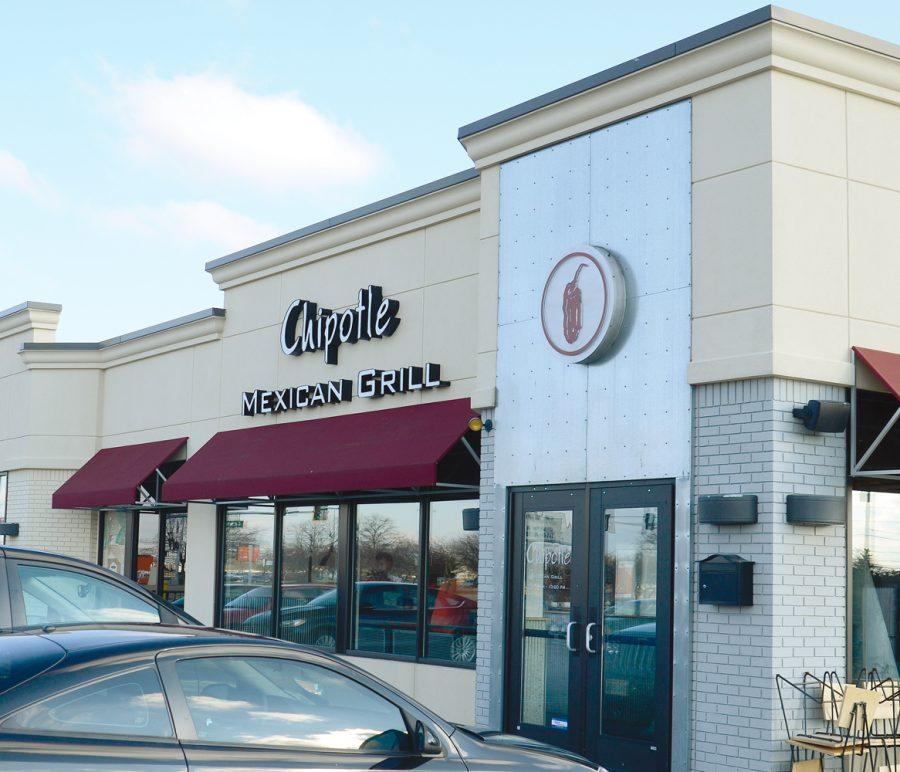The usual lunch rush did not happen at Chipotle yesterday, as the Mexican grill franchise closed all its locations until 3 p.m. for nationwide meetings on food safety.
Though the Center for Disease Control and Prevention ended its inquiries into Chipotle Mexican Grill, the restaurants have had several bacterial and viral outbreaks in 2015.
Viruses like norovirus and bacteria such as E. coli and salmonella have been found in the ingredients at a number of Chipotle locations and have been making people sick.
In an excerpt from the memo to the staff nationwide, Steve Ells, Chipotle’s co-CEO, wrote the company “takes food safety very seriously.”
New testing and better produce and meat preparations were just some of the new improvements listed in the memo.
“The events of 2015 have shown us that our recipe was out of balance. That’s why we’ve changed some of our procedures,” wrote Monty Moran, Chipotle’s co-CEO.
Dawn Anderson, an associate professor in the BGSU College of Health and Human Services, said there are two types of foodborne illnesses that are mistakenly grouped together as “food poisoning.”
“You have foodborne infection, so eating the bacteria actually makes you sick,” Anderson said. “Foodborne intoxication, or food poisoning, in the organism … produces a toxin and that’s what makes you ill.”
E. coli is a bacteria that produces a toxin called shiga, and shiga was responsible for some of the food poisoning incidents involving Chipotle’s food.
According to the case count maps from the CDC’s website, 55 people in the United States have contracted E. coli from Chipotle as of Jan. 27, 2016.
Some students at the University have had mixed reactions about the outbreaks of the illnesses.
“I heard about (the outbreaks), and I was more hesitant but the outbreaks weren’t in Ohio, so I wasn’t too worried about it,” said Tori Buchheim, a sophomore business major.
Buchheim said she continued to eat at Chipotle during the outbreak and “didn’t really know much about E. coli,” and that’s why she kept eating there.
Jamond Hampton, another student at the University, said once he’d heard about the problems Chipotle was having with E. coli contamination, he stopped eating there.
“I haven’t eaten there in awhile, and I probably won’t because of this whole E. coli issue,” said Hampton.
Foods contaminated with E. coli or other foodborne illnesses do not exhibit any signs of contamination.
“Color doesn’t change, flavor doesn’t change, odor, there’s no difference for pathogenic organisms,” said Anderson.
Anderson said the temporary shut down was a good idea and would help the company improve its food safety practices.
She also said recognizing the problem of food safety in their restaurants “is going to go a long way toward getting their customers to come back.”
“We all need to commit today not to let this happen again,” wrote Moran in the memo.
The Chipotle staff in Bowling Green were not allowed to comment on the temporary closure.
Though there is no sure way to prevent contracting a foodborne illness in a public setting, precautions like frequently washing hands and paying attention to the cleanliness of a restaurant or establishment can prevent contraction of a foodborne illness.
• According to the Center for Disease Control and Prevention’s website:
• E. coli is found in the intestinal tracts of humans and animals
• E. coli that produces shiga toxin is the type of E. coli that can make humans sick.
• Humans can become infected by ingesting the bacteria from the environment, i.e. water, eating undercooked/contaminated food or eating food that has been contaminated by unwashed hands
• Symptoms include: diarrhea, nausea and vomiting or other flu-like symptoms
• Symptoms may not immediately appear, as the incubation period on E. coli is roughly 3-4 days
• Most people will stop experiencing sickness in 5-7 days
• Antibiotics are not recommended to treat E. coli infections
• Symptoms must be waited out, and hydration is important
• Contamination can be prevented by:
Washing hands regularly
Avoiding ingesting water in public pools or lakes
Cooking food thoroughly
Avoiding raw milk products
Washing food prep areas and dishes
For more information on E.coli, visit http://www.cdc.gov/ecoli/general/index.html














